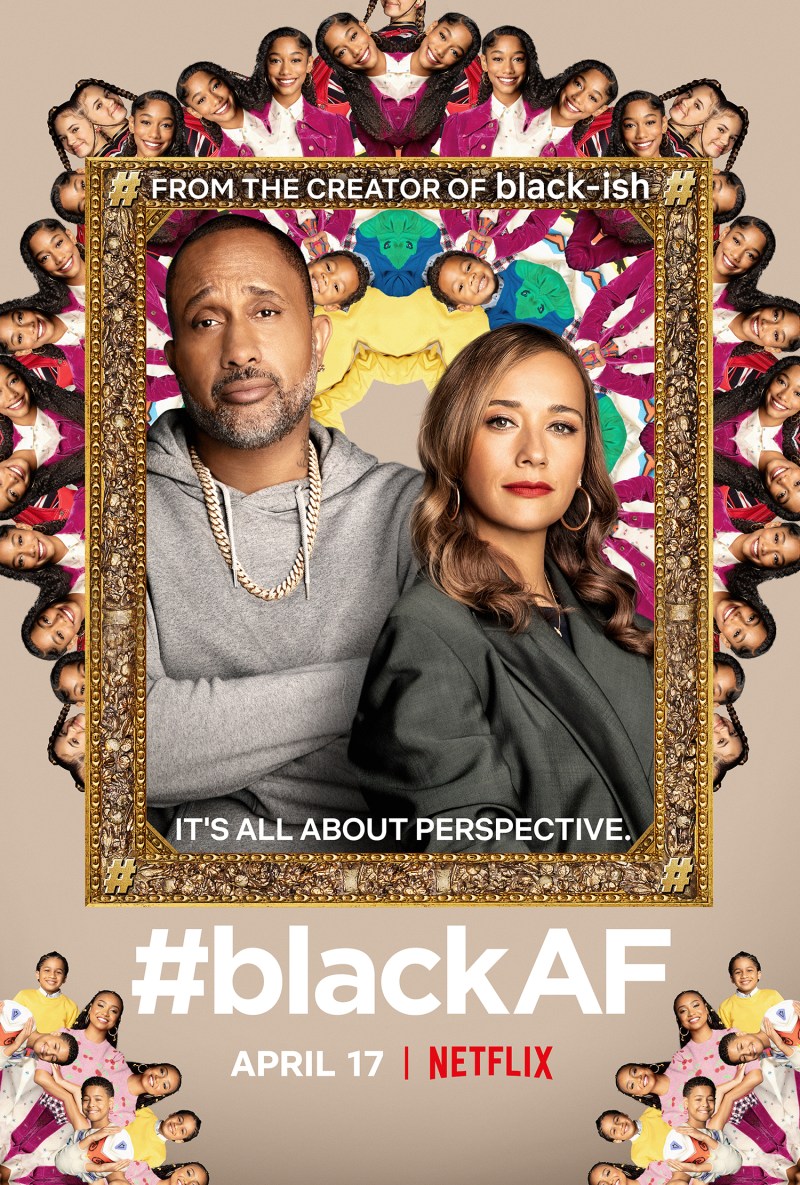As a global pandemic makes spinning tops out of our lives, endlessly twirling until some force flicks us toward another direction, Kenya Barris orients us by focusing our eyes on the three constants: principles, choice and colorism.
If you think I just fudged a Steve Covey quote, then you haven’t watched “#BlackAF.” Barris expands — wait, concave is the better word — Barris concaves the “Black-ish” Universe with a new Netflix sitcom about a new money black man navigating both his family and white America. In attempting to act as commentary on black men in Hollywood, the show reveals a more telling story in its casting: it’s light AF. With no dark-skinned actresses on screen, it shows that even when we celebrate black men on the come up, we leave dark-skinned women behind them.
If you’re familiar with Barris’ work, then you know he uses his art to tackle social issues. “#BlackAF” doesn’t stray from the good stuff; albeit it doesn’t offer anything certified-fresh either. The gist is Kenya Barris’ character, a famous black TV writer, just cut a lucrative deal with Netflix to produce a new show (right, so still Kenya Barris) and his daughter is filming a documentary for film school. From behind the camera, Drea (played by Iman Barson) captures the family without a filter. The dad calls one kid a thot for having purple hair, the mom shuts down a problematic white liberal couple with her pettiness and a law degree, and the kids describe their parents as horrific humans during camera confessionals. While the show’s satire provides the audience with much-needed laughs these days, it’s difficult to ignore the ongoing trend of only casting light-skinned black women for starring in the media.
Kenya broke free of his contract with Disney’s ABC Studios in 2018 to pursue a three-year $100 million deal with Netflix with more creative license. As he stretches his legs of artistic authenticity, he’s, disappointedly, copying his old strides and old mistakes. His latest series explores themes similar to his magnum opus, “Black-ish,” a show that also followed a black middle-class family and explored topics of race and privilege. Despite #BlackAF being inspired by his real-life family, his on-screen children are significantly lighter in skin color. You can see the colorist touch of the Hollywood casting system all over the screen. Talk about White Gaze.
During a podcast interview, Kenya said he understood the value of this criticism in a podcast. The show is based on his personal narrative, and for that reason, he tried to duplicate what his kids would look like within the character context.
“[Rashida Jones] is playing a version of that character,” he said. “My kids, what she and I could produce, look like those kids, who are amazing.”
His real-life wife, Edward Rainbow-Barris, is a similar complexion to Rashida Jones, yet the couple still produced children of varying shades. Having a fair-skinned parent does not ensure that your children will be fair-skinned. Look at celebrities like Laura Harrier, Kendra Bailey and Yara Shahidi who all have white and black identifying parents and all possess features that are socially accepted as “monoracially black.”
Last year, Kenya moved the conversation around colorism from our living rooms to network television in an episode of “Black-ish” called “Black Like Us.” While the episode focused on tensions around the light-skin vs. dark-skin dynamic, it failed to explore how colorism affects men differently than women.
By today’s standards, it’s okay for a man to be dark-skinned. Pop culture hoists up Idris Elba, Michael B Jordan and Chadwick Bosman and deems them desirable. But often when it comes to black women, to earn a starring role on a screen they need to pass the paper bag test first. Give us your Zendayas, your Jadette Picket Smiths, your Zoe Saldanas! You can keep your Violas. Black sitcoms like “The Cosby Show,” “My Wife and Kids” and, as of late, “Black-ish” play within these colored lines. Generations of black folks grew up on these shows and internalized the notion that girls should be proud to be black, but not too black.
For most of the pilot, Kenya (the character) contemplates whether or not he’s dressing for the White Man and should relinquish his lavish apparel. Bradley Cooper’s “Maybe It’s Time to Let the Old Ways Die” plays as he wonders, “Am I a coon? Do I need to change?”
Maybe, Kenya. Maybe.
With Hollywood championing a narrow concept of diversity, it’s more important than ever to fight for representation for all types and all shades of black women in front of and behind the camera. Even as diversity in media gains more traction, the depiction of darker-skinned black women remains static. In the spirit of Kenya himself…
Colorism. Bet on it.
Contact Christine Delianne at delianne ‘at’ stanford.edu.
